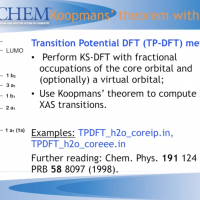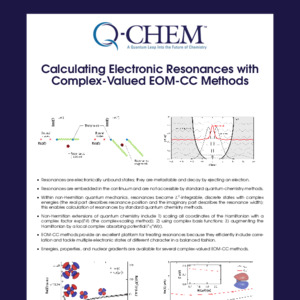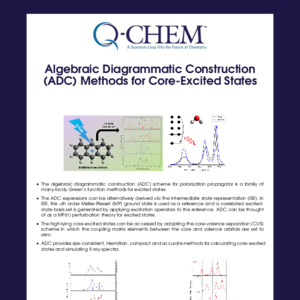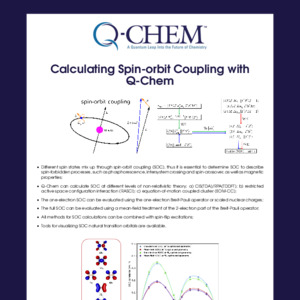Q-Chem Webinar 46
From single-molecule magnets to infinite spin chains: A many-body adventure

Pavel Pokhilko graduated from Lomonosov Moscow State University with honors. After that, Pavel moved to the University of Southern California for his Ph. D. under the supervision of Prof. Anna Krylov. During his visit to Q-Chem in Pleasanton, he and Dr. Evgeny Epifanovsky generalized tensor operations in Q-Chem's libtensor library, which allowed the implementation of single-precision options for coupled-cluster methods. Pavel developed and implemented a general algorithm for spin-orbit coupling evaluation that enabled relativistic calculations for a variety of methods in the Q-Chem package. Pavel also implemented tools for analysis of spin-orbit couplings and analysis of electronic calculations in terms of effective Hamiltonians.
Pavel is now a postdoctoral fellow in Prof. Zgid’s group at University of Michigan, working on the application of Green’s function methods to strongly correlated systems.
Abstract
Single-molecule magnets are molecules with one or several radical centers, showing magnetic properties. They can serve as building blocks of extended magnetic or ferroelectric materials. Their theoretical treatment is challenging because one needs to tackle both strong and weak correlations and also include relativistic effects, such as spin-orbit interaction. I will describe new tools that we developed for the rigorous and quantitative treatment of magnetic systems. Our approach is grounded in the equation-of-motion coupled-cluster (EOM-CC) theory. We treat spin-orbit interactions in an ansatz-agnostic fashion, using reduced quantities, such as one-particle density matrices, and the Wigner-Eckart theorem. To access larger systems, we use the effective Hamiltonian approach. The effective Hamiltonians, derived from EOM-CC wavefunctions by means of Bloch theory, enable extrapolation of properties computed for finite systems to the infinite number of spins. In my talk, I will illustrate this approach by a few examples including iron-based SMMs and copper oxalate.
[This is an excerpt from our Virtual Wormit Award Mini-Symposium. To view the entire webinar, please visit the Q-Chem YouTube page.]





